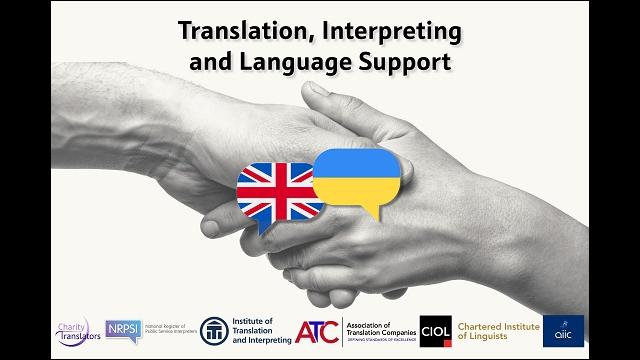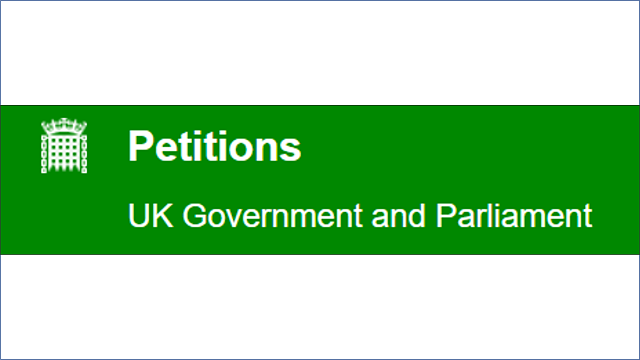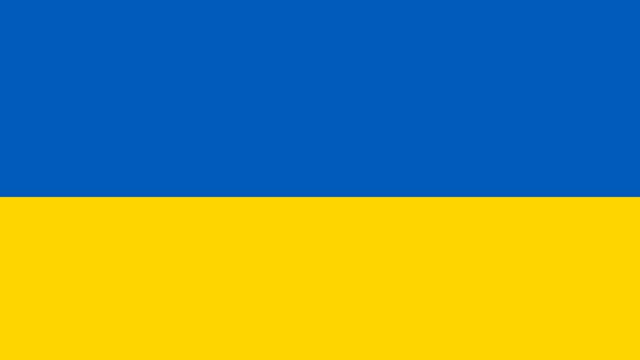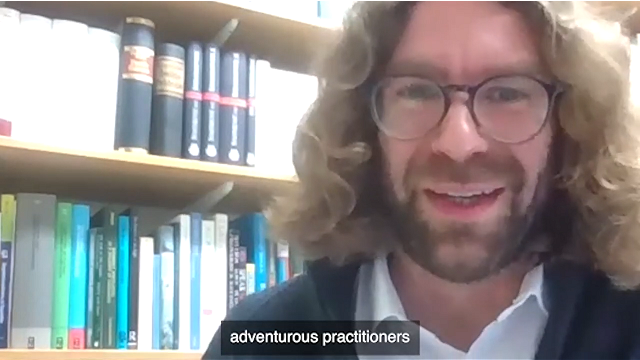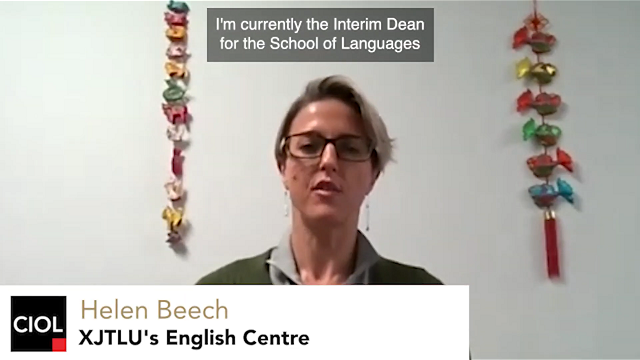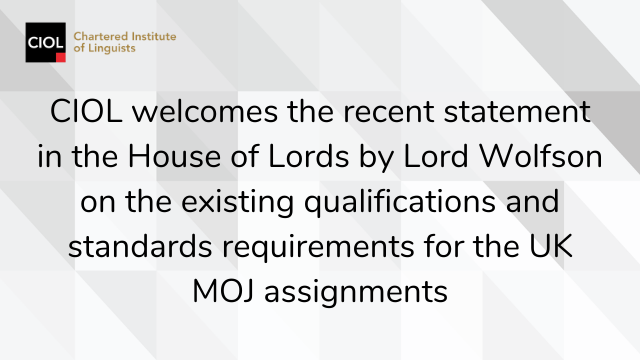-
QUALIFICATIONS
- For Linguists Worldwide
- For UK Public Services
- Preparation
- Policies & Regulation
-
MEMBERSHIP
- Join CIOL
- Professional Membership
- Affiliate Membership
- Chartered Linguist
- Already a member?
- Professional conduct
- Business & Corporate Partners
-
LANGUAGE ASSESSMENTS
- English
- All Other Languages
-
CPD & EVENTS
- Webinars & Events
- CIOL Conferences
- Networks
- CIOL Mentoring
-
NEWS & VOICES
- News & Voices
- CIOL eNews
- CIOL Awards
- The Linguist Magazine
- Jobs & Ads
-
RESOURCES
- For Translators & Interpreters
- For Universities & Students
- Standards & Norms
- CIOL & AI
- All Party Parliamentary Group
- In the UK
- UK Public Services
- Find-a-Linguist
ITI and CIOL raise concerns about Energy Consumption report
ITI and CIOL have written to The Rt Hon Ed Miliband MP, the UK's Secretary of State for Energy Security and Net Zero as below:
Europe Economics Report on Impact of Growth of Data Centres on Energy Consumption – Translation case study
FAO The Rt Hon Ed Miliband MP, Secretary of State for Energy Security and Net Zero
We learned this week, courtesy of a post by a professional translator on LinkedIn, that in August the UK Government published a report on Impact of Growth of Data Centres on Energy Consumption produced by Europe Economics. The post expressed concerns about the use of translation as a case study in the report.
We have now had time to read the report and would jointly like to express our shared serious concerns about the choice of a ‘professional translator’ as one the case studies. The report authors appear to believe that translation by a human offers a “credible physical alternative” to translation by AI, but we do not believe that this is the case.
The authors appear to have little understanding of the nature of professional translation and have therefore made several inappropriate assumptions. As a result we feel the case study is deeply flawed, which casts considerable doubt on the validity of the methodology, and the outcomes of this research. We simply cannot agree with the authors’ assertion that their results show that significant reductions in electricity consumption can be achieved by digitalisation in the field of translation.
The translation case study is not credible for the following reasons:
- AI-generated translations are only suitable for getting the gist of the meaning of a text (as acknowledged in the report). A professional translator is bound by their Code of Professional Conduct to produce a text that is accurate, complete and fully conveys the intended meaning at a level of quality appropriate to the project brief.
- Professional translators rarely rely on AI for translation tasks due to well documented issues regarding the quality and accuracy of AI outputs. If they do use AI to produce a draft translation it still requires post-editing and then quality assurance reviews before it is complete.
- Translation tasks very considerably in terms of the quality required by the client. In certain professional contexts (e.g. legal, medical, publishing etc.) accuracy and nuance are critical in order to ensure regulatory compliance and manage the associated risks.
- Professional translators are largely self-employed and work from home rather than in an office.
It is also worth noting that most of the people currently using AI to translate texts are not professional translators, and tend to be translating texts that they would not have asked a professional translator to translate before AI tools were cheaply available. The rise of AI has increased the volume of texts being translated and is therefore an additional energy cost rather than a displacement of existing energy use.
Given these concerns, we respectfully urge the Government to:
- Refrain from using this report as a basis for any policy decisions until its methodology is independently peer reviewed.
- Remove the report from gov.uk until it has been independently peer reviewed.
- Commission a credible reassessment of the AI translation case study, involving UK university-based experts in professional translation practice, Machine Translation and AI, and energy modelling. As the leading bodies for linguistics professions in the UK we would be happy to provide insight into the translation workflow and the importance of taking translation quality and purpose into account.
- Consider how it can access the necessary expertise to generate credible case studies based on genuine real-world use cases. Unless the general methodology is modified to take full account of the workflow required in the “physical alternatives” then the comparisons are worthless and do not stand up to scrutiny, thus invalidating the whole methodology.
In addition, we would like to register our equally grave concern that publishing ill-conceived case studies that are based on inaccurate assumptions creates a false impression of the translation profession.
The report, perhaps unintentionally, trivialises the work of professional translators and belittles their skills, knowledge, and experience. This is potentially highly damaging to the reputation, and indeed the livelihoods, of the professional translators who are respected members of our professional bodies.
We would be pleased to discuss our concerns with your team in more detail and to help identify a more appropriate approach.
Yours sincerely
Sara Robertson, Chief Executive
Institute of Translation and Interpreting
John Worne, Chief Executive
Chartered Institute of Linguists
More
The Chartered Institute of Linguists (CIOL), Incorporated by Royal Charter, Registered in England and Wales Number RC 000808 and the IoL Educational Trust (IoLET), trading as CIOL Qualifications, Company limited by Guarantee, Registered in England and Wales Number 04297497 and Registered Charity Number 1090263. CIOL is a not-for-profit organisation.


